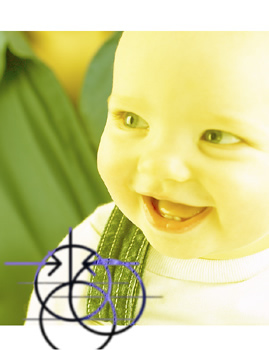Feb 10 2005
 Although most parents, educators, and researchers believe that children can't learn specific words until well into their second year, children younger than 1 year can, in fact, learn certain words for things that are not a regular part of their daily lives, according to new research being published in the January/February 2005 issue of the journal, Child Development.
Although most parents, educators, and researchers believe that children can't learn specific words until well into their second year, children younger than 1 year can, in fact, learn certain words for things that are not a regular part of their daily lives, according to new research being published in the January/February 2005 issue of the journal, Child Development.
The findings, based on research by Graham Schafer, D.Phil., of the University of Reading in Reading in the United Kingdom, suggest that what is considered a "formal" learning of a word may be underway long before children say much. "It appears that young children may understand word use more flexibly than scientists and parents have previously thought," says Dr. Schafer. The findings call into question earlier beliefs that before their second year most children only learn words for things they are interested in, or when those words are linked to certain routines, such as "bath," "car," or "cat."
To investigate this issue, Dr. Schafer asked parents of 52 nine-month-olds to use 12 board books and a set of 48 picture cards depicting common objects like keys, apples, fish, and chairs in simple games with their children four times a week for up to 10 minutes a session. The games were designed to build on the kind of routines parents already used in the home: Naming and pointing, sorting, finding the odd one out. No reading was required for either parents or children.
After three months, the children, now 1 year, received a test of word understanding in which they were shown pairs of pictures and asked to look at one of them based on what the investigator said. For instance, the investigator might say, "Fish, fish! Look at the fish!." Dr. Schafer then measured whether the child looked at the correct picture.
Children who had been through the training with their parents looked at the correct picture, while a control group of untrained children did not. "This was notable because in the test, the pictures, voices, and the context were all new to the children," said Dr. Schafer. "So we can conclude that the children who had taken part in the games with their parents had learned these particular words, and not in a way linked to a special context."
The message for parents? "They should be aware that there may be no 'lower limit' to the age at which their children are able to learn new words," says Dr. Schafer. "Parents should definitely talk to their young children – even more than they may already do."